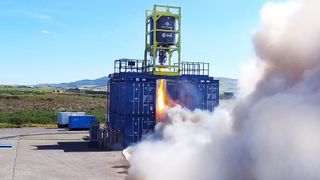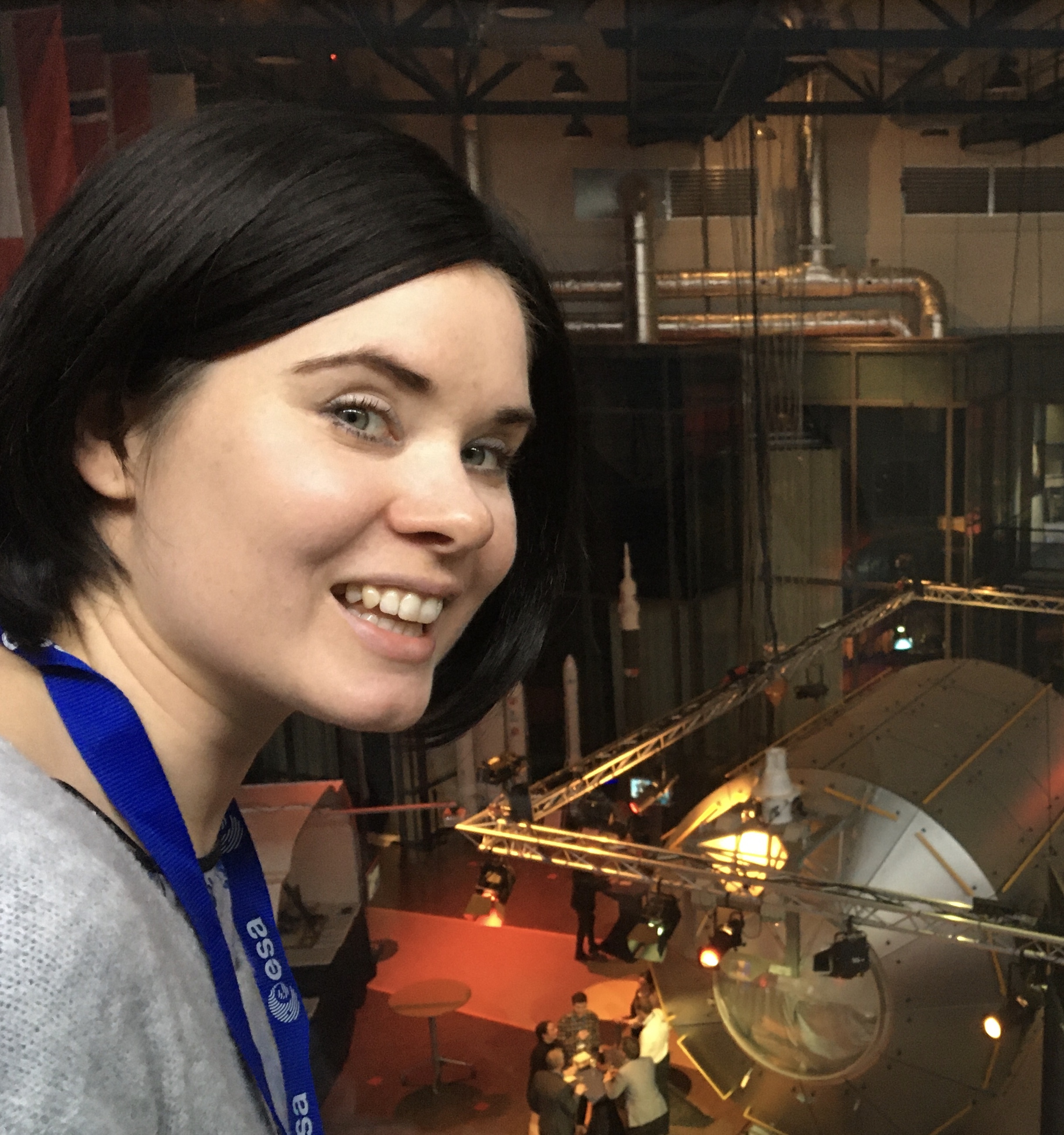British rocket startup Skyrora aces key engine test ahead of 2023 debut launch
Skyrora wants to launch its first rocket from Scotland in 2023.

British rocket startup Skyrora completed a static fire engine test of the second stage of its orbital rocket, potentially paving the way for a debut launch in 2023.
The test, which the company described as the "largest integrated stage test" conducted in the U.K. in 50 years, took place at the Machrihanish Airbase on the Mull of Kintyre peninsula in Scotland.
During the test, the engine performed a nominal 20-second burn, achieving the thrust required to get the second stage of the Skyrora XL rocket into low Earth orbit, Skyrora said in a statement.
Related: Can biofuels make spaceflight greener? UK space startups reveal plans for cleaner rocket launches
"The static fire test looks, sounds and feels a lot like a rocket launch, but without lifting off," Lee Rosen, Skyrora's chief operations officer and a former SpaceX vice president, said in the statement. "This hugely successful test was a definitive demonstration of our mobility and flexibility. The Skyrora team went from clean tarmac to a full static fire test in just 2.5 days, bringing all the necessary equipment with them.”
Skyrora expects to launch its orbital rocket for the first time in 2023 from the SaxaVord spaceport on the Shetland Islands in the north of Scotland.
Multiple companies are developing plans to launch small satellites from U.K. soil. Orbex, also based in Scotland, plans to fly its Prime rocket from Scotland's Space Hub Sutherland, next year. And Virgin Orbit is expected to launch the first-ever payload to space from British soil later this year from Cornwall.
Get the Space.com Newsletter
Breaking space news, the latest updates on rocket launches, skywatching events and more!
In the 1960s, the U.K. developed the Black Arrow rocket, which launched one satellite to low Earth orbit from Australia. But the program was scrapped for cost reasons immediately after the debut flight.
Follow Tereza Pultarova on Twitter @TerezaPultarova. Follow us on Twitter @Spacedotcom and on Facebook.
Join our Space Forums to keep talking space on the latest missions, night sky and more! And if you have a news tip, correction or comment, let us know at: community@space.com.

Tereza is a London-based science and technology journalist, aspiring fiction writer and amateur gymnast. Originally from Prague, the Czech Republic, she spent the first seven years of her career working as a reporter, script-writer and presenter for various TV programmes of the Czech Public Service Television. She later took a career break to pursue further education and added a Master's in Science from the International Space University, France, to her Bachelor's in Journalism and Master's in Cultural Anthropology from Prague's Charles University. She worked as a reporter at the Engineering and Technology magazine, freelanced for a range of publications including Live Science, Space.com, Professional Engineering, Via Satellite and Space News and served as a maternity cover science editor at the European Space Agency.
